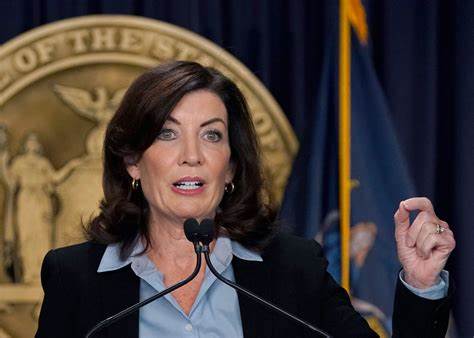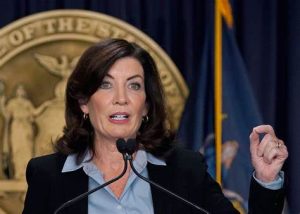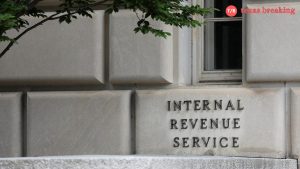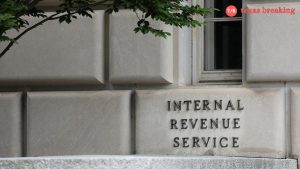In a significant blow to landlords, Governor Kathy Hochul signed a bill on Friday that extends the definition of fraud in rent overcharge cases, marking a substantial amendment to the 2019 Housing Stability Tenant Protection Act. The legislation also establishes regulations aimed at curbing rent on what is colloquially known as “Frankenstein” apartments—units created by combining vacant, rent-regulated apartments. The move has triggered concerns among property owners, with critics warning of potential repercussions leading to a surge in rent overcharge cases.

The bill’s passage in June ignited apprehension among landlords who expressed fears that the legislation could make them susceptible to accusations of fraud, particularly if they were unable to produce detailed records pertaining to building renovations. Real estate attorney Zachary Rothken raised concerns about the broad language of the bill, suggesting that any inadvertent error could be construed as fraudulent. He emphasized the potential impact on the rent-stabilized market, asserting that the legislation might place an additional financial burden on property owners, hindering their ability to maintain buildings adequately.
Jay Martin, Executive Director of the Community Housing Improvement Program, did not mince words, labeling the law a “disaster” and warning of dire consequences for rent-stabilized housing. This sentiment echoes the broader sentiment within the landlord community, which perceives the legislation as a potential threat to the viability of their properties.
Proponents of the bill, including tenant advocates and its sponsors, Senators Brian Kavanagh and Assembly member Linda Rosenthal, argue that it addresses long-standing issues within the housing market. They contend that the legislation brings clarity to existing loopholes that landlords exploited to deregulate housing. The bill’s provisions, certified by the state’s housing regulator in October, specifically target changes to how rents are set for vacant regulated units when combined and for deregulating stabilized buildings through substantial rehabilitation.
The new regulations restrict the rent for combined units to the sum of the previous individual apartment rents, preventing landlords from arbitrarily setting new rental prices when merging stabilized units. Additionally, the bill imposes a time limit for owners to retroactively apply for deregulated status achieved through substantial rehabilitation, limiting their ability to raise rents through this process.
Read Also – The IRS Brings Holiday Relief to Weary Taxpayers





